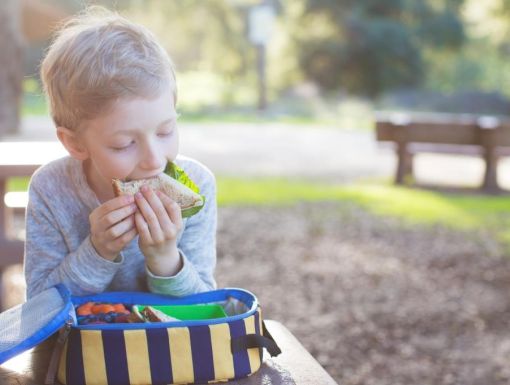
How To Give Your 3-Year-Old a Head Start on School
It’s easy for parents to become overwhelmed with emotions and anxiety as the first day of preschool approaches. We’re all concerned about our kids and want them to do well. The question is: did we prepare them?
In recent years, it has become apparent that early childhood literacy is the key to classroom success. Children introduced to reading early on tend to read sooner and excel in school as compared to those not exposed to language and books at early ages. In light of a child's need for early and frequent brain stimulation, there are several steps that parents and caregivers can take to enhance their child's brain development.
The most important begins at birth with singing, rhyming and talking to your baby. Reading books aloud and showing pictures have proven to help even in infancy. Even young infants can visually attend to books with black and white patterns and contrasting colors for short periods of time.
Reading does not have to be a huge project. Just a short story 3-5 minutes every night before bed will help your child become ready for preschool. Studies suggest that when parents read to children as part of their regular bedtime routine that it also promotes healthy sleep habits.
Make learning fun! The best approaches are to offer your child a wide variety of learning opportunities. Introduce your child to zoos, museums and playgrounds; even playing outside can be used as a learning experience.
Another very important aspect to readiness for preschool is to inspire confidence in your child. Reward children for good behaviors and tell them that they make you proud. Children crave attention and want to please.
Between 3-4 years of age there are several developmental milestones to look for. Because children develop at their own pace, it's impossible to predict exactly when they’ll perfect a given skill. The list below is meant as a general idea of what you can expect between 3-4 years of age and readiness for preschool. Don't be alarmed if your child’s development takes a slightly different course. Speak with your pediatrician if you have concerns.
MOVEMENT MILESTONES:
- Hops and stands on one foot for five seconds
- Goes up and down stairs without help
- Throws ball overhand
- Catches bounced ball most of the time
- Moves forward and backward with agility
MILESTONES IN HAND AND FINGER SKILLS:
- Copies squares
- Draws a person with two to four body parts
- Uses scissors
- Draws circles and squares
- Begins to copy some capital letters
LANGUAGE MILESTONES:
- Understands the concept of "same" and "different"
- Has mastered some basic rules of grammar
- Speaks in sentences
- Speaks clearly enough for strangers to understand at age 4
- Tells stories
COGNITIVE MILESTONES:
- Correctly names some colors
- Understands the concept of counting and may know a few numbers
- Approaches problems from a single point of view (no reasoning from other points of view expected)
- Begins to have a clearer sense of time
- Follows three-part commands
- Recalls parts of a story
- Engages in fantasy play
SOCIAL AND EMOTIONAL MILESTONES:
- Interested in new experiences
- Cooperates with other children
- Plays "mom" or "dad"
- Dresses and undresses
- Imagines that many unfamiliar images may be "monsters"
- Often cannot distinguish between fantasy and reality
RED FLAGS:
The following may be signs of possible developmental delays and should be addressed with your pediatrician.
- Cannot throw ball overhand
- Cannot jump in place
- Cannot grasp a crayon between thumb and fingers
- Has difficulty scribbling
- Cannot stack four blocks
- Shows no interest in interactive games
- Ignores other children
- Doesn't engage in fantasy play
- Resists dressing, sleeping, using the toilet
- Lashes out without any self-control when angry or upset
- Cannot copy a circle
- Doesn't use sentences of more than three words
- Doesn't use "me" and "you" appropriately
In preparing your child for preschool and life experiences, a loving, safe environment, healthy nutrition and reading to your child will give them the confidence and skills needed to succeed. If you have any concerns about your child, reach out to your pediatrician.



